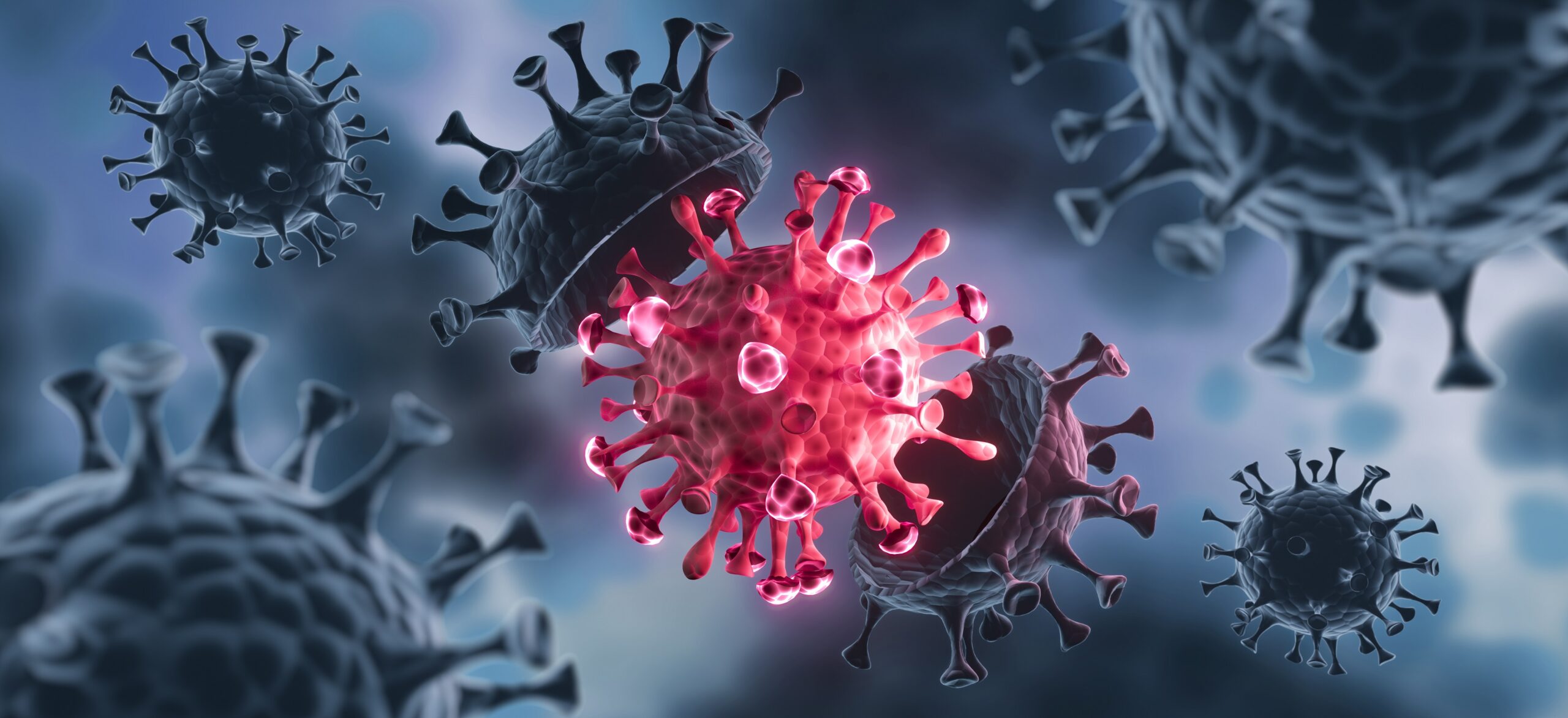
Tissue damage and RNA virus in examined organs – healing practice

COVID-19: Tissue damage in only one organ
It has long been known that SARS-CoV-2 is not a purely respiratory virus, but it can attack many other organs in addition to the lungs. A research team has now examined the viral load in different organs and found tissue damage in only one of them.
With the SARS-CoV-2 virus spreading to humans relatively recently, experts only know more about their behavior and the medical consequences of infection in the context of the current pandemic. In COVID-19 disease caused by the pathogen, the main focus is on respiratory and lung symptoms, but the virus also attacks other organs. Researchers have now gained new insights on the topic.
The mechanisms of the disease are still poorly understood
In the pandemic, which has lasted for more than a year, more than 127 million SARS-CoV-2 infections have already been recorded worldwide (as of March 30, 2021).
Much has already been achieved in biomedical and clinical research for COVID-19, but the underlying disease mechanisms remain poorly understood.
According to another Message A research team from virology, microbiology, forensic medicine and pathology as well as intensive care medicine and electron microscopy at the University of Jena Hospital examined the bodies of eleven people who had died from COVID-19.
Scientists recorded the viral load of SARS-CoV-2 in a large number of organs and tissues and related the distribution of the virus to existing tissue damage. Your results have now been published in the online journal.eLife“Was released.
Autopsy shortly after death
Author Dr. Stephanie Denhardt Emer. “However, there are no suitable experimental models for investigating COVID-19.”
In order to get a comprehensive picture of the disease in terms of microbiology and histology in the extremely severe case, researchers performed autopsies on people who died only a few hours after death. Thus lysis processes on tissue and virus RNA can be minimized.
For each deceased, they documented the viral load of SARS-CoV-2 and markers of inflammation and tissue damage in more than 60 samples in different organs. Using electron microscopy images, experts were able to detect healthy virus particles in lung tissue.
The immune system cannot respond appropriately
As expected, the scientists found viral RNA mainly in the lungs, and the tissue there was also badly affected.
Interestingly, we also detected SARS-CoV-2-RNA in various other tissues and organs, such as the gastrointestinal organs, the kidneys, or the cardiac vessels. But the virus only attacked lung tissue, “explains forensic scientist and co-author PD Dr. Daniel Wichiber.
According to the information, all patients had increased inflammatory markers and clotting factors.
With their study, which for the first time comprehensively determines the viral load and tissue damage in COVID-19, Jena researchers confirm the systemic character of the disease.
“The fact that only lung tissue is damaged, but the virus is spreading throughout the body, supports the assumption that our immune system cannot react appropriately to the presence of the virus in the blood. This is the real problem with COVID-19,” says Stephanie Denhardt. Emer. (ad)
Author and source information
This text complies with the requirements of the specialized medical literature, medical guidelines and current studies and has been examined by medical professionals.
Inflated:
- University of Jena Hospital: Atlas of COVID-19 of Tissue Damage and Viral Load in Organs, (Accessed: March 30, 2021), University Hospital of Jena
- Stephanie Denhardt Imer, Daniel Wichbeer, Julian Sanft, Sandra Kleiman, Stephan Elshner, Caroline Frieda Haupt, Vanessa Faw, Cleo Harring, Juergen Rodel, Andreas Hencke, Christina Earhardt, Michael Bauer, Mike Philip, Nicholas Gasler, Sandra, Jetta Maul: drawing Early postmortem maps of SARS-CoV-2 RNA in patients with COVID-19 and the relationship with tissue damage; In: eLife, (date of publication: 30.03.2021), eLife
important note:
This article is for general guidance only and is not intended to be used for self-diagnosis or self-medication. He cannot replace a visit to the doctor.

“Organizer. Social media geek. General communicator. Bacon scholar. Proud pop culture trailblazer.”
